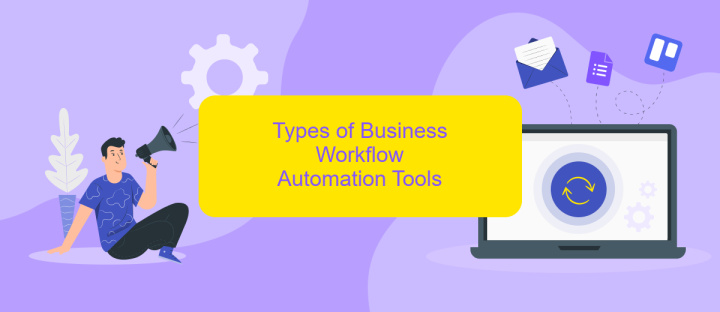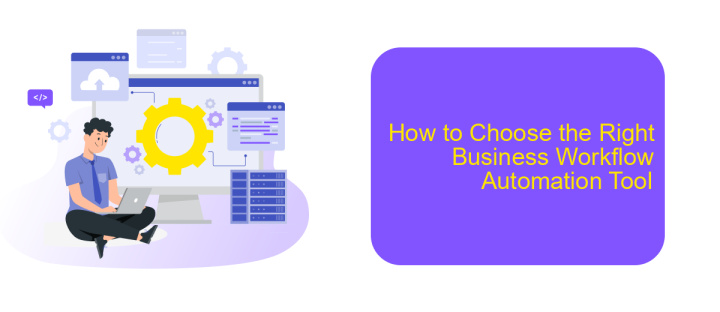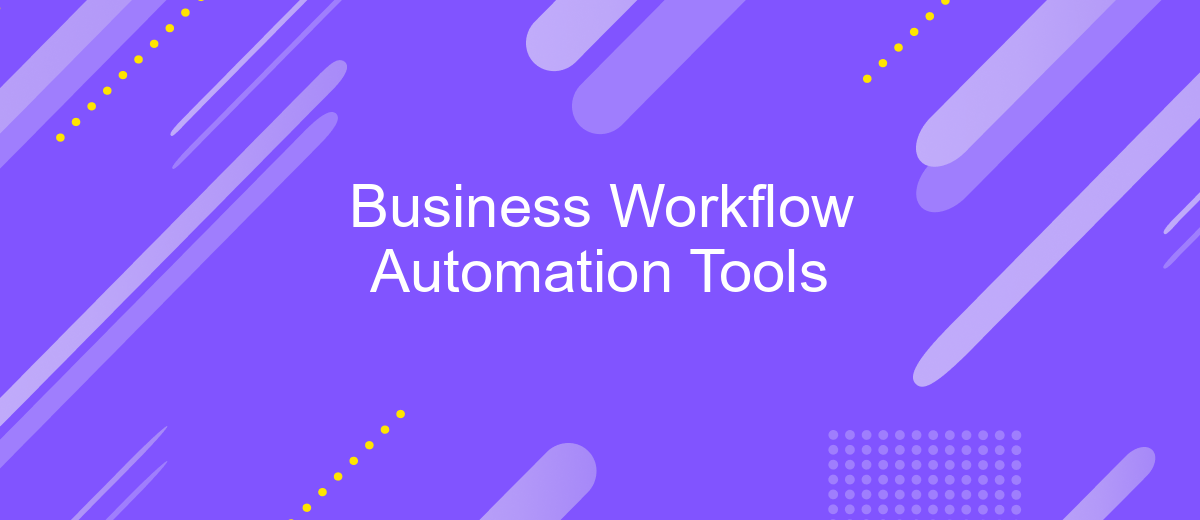Business Workflow Automation Tools
In today's fast-paced business environment, efficiency is paramount. Business workflow automation tools are revolutionizing the way companies operate by streamlining processes, reducing manual tasks, and enhancing productivity. These tools help organizations save time, cut costs, and improve accuracy, allowing teams to focus on strategic initiatives rather than routine activities. Discover how automation can transform your business operations.
What is Business Workflow Automation?
Business workflow automation involves the use of technology to streamline and automate repetitive tasks within business processes. This approach enhances efficiency, reduces human error, and allows employees to focus on more strategic activities. By automating workflows, businesses can ensure that tasks are completed consistently and accurately, leading to improved productivity and operational efficiency.
- Reduces manual intervention
- Improves accuracy and consistency
- Enhances productivity and efficiency
- Frees up time for strategic tasks
One effective way to implement business workflow automation is through integration tools like ApiX-Drive. ApiX-Drive allows businesses to connect various applications and automate data transfer between them, eliminating the need for manual data entry. By leveraging such tools, companies can create seamless workflows that integrate multiple systems, ensuring that information flows smoothly and tasks are completed without delays. Overall, business workflow automation is a crucial strategy for modern organizations aiming to optimize their operations and stay competitive in the market.
Benefits of Business Workflow Automation

Implementing business workflow automation offers numerous advantages, significantly enhancing operational efficiency. By automating repetitive tasks, businesses can reduce human error, save time, and allocate resources more effectively. This leads to faster completion of processes, allowing employees to focus on more strategic activities, ultimately driving innovation and growth. Additionally, automation ensures consistency and compliance, as standardized procedures are followed without deviation.
Another significant benefit is the ability to integrate various tools and systems seamlessly. Services like ApiX-Drive facilitate these integrations, enabling businesses to connect different applications without the need for extensive coding knowledge. This not only streamlines workflows but also enhances data accuracy by ensuring information is synchronized across platforms. Consequently, businesses can make more informed decisions based on real-time data, improving overall productivity and customer satisfaction.
Types of Business Workflow Automation Tools

Business workflow automation tools are essential for optimizing and streamlining various business processes. These tools come in different types, each designed to address specific needs within an organization.
- Task Management Tools: These tools help in assigning, tracking, and managing tasks within a team. Examples include Trello and Asana.
- Document Management Systems: These systems facilitate the storage, retrieval, and management of documents. Popular options are Google Drive and SharePoint.
- Integration Tools: Tools like ApiX-Drive allow seamless integration between various software applications, enabling data transfer and synchronization across platforms.
- Customer Relationship Management (CRM) Systems: These systems help manage customer interactions and data. Salesforce and HubSpot are leading CRM tools.
- HR Automation Tools: These tools streamline HR processes such as recruitment, onboarding, and payroll management. Examples include BambooHR and Workday.
Each type of business workflow automation tool serves a unique purpose, making it crucial for organizations to choose the right combination to meet their specific needs. By leveraging these tools, businesses can enhance productivity, reduce errors, and achieve greater efficiency in their operations.
How to Choose the Right Business Workflow Automation Tool

Choosing the right business workflow automation tool is crucial for enhancing productivity and efficiency. The first step is to identify your specific business needs and the processes you wish to automate. Understand the pain points in your current workflow and how automation can address them.
Next, consider the scalability and flexibility of the tool. Your chosen solution should be able to grow with your business and adapt to changing requirements. Additionally, evaluate the ease of use and user interface to ensure that your team can quickly adopt and effectively utilize the tool.
- Identify your business needs
- Consider scalability and flexibility
- Evaluate ease of use and user interface
- Check integration capabilities
- Analyze cost-effectiveness
Integration capabilities are essential for seamless workflow automation. Tools like ApiX-Drive can help you connect various applications and services without coding, making it easier to streamline processes. Finally, analyze the cost-effectiveness of the tool, ensuring it provides value for money and fits within your budget.
- Automate the work of an online store or landing
- Empower through integration
- Don't spend money on programmers and integrators
- Save time by automating routine tasks
Best Practices for Implementing Business Workflow Automation
Implementing business workflow automation requires a strategic approach to ensure success. Start by identifying repetitive tasks that consume significant time and resources. Mapping out these processes will help you understand where automation can provide the most value. Involve key stakeholders in the planning phase to gather insights and ensure alignment with business goals. Choose the right tools that fit your specific needs; for example, ApiX-Drive can streamline integrations between various applications, reducing manual effort and errors.
Once you have selected the appropriate tools, focus on proper training and change management. Educate your team on how to use the new systems effectively to maximize their benefits. Regularly monitor and evaluate the automated workflows to identify areas for improvement. Continuous optimization is crucial for maintaining efficiency and adapting to evolving business requirements. By following these best practices, you can successfully implement business workflow automation and achieve significant productivity gains.
FAQ
What is Business Workflow Automation?
How can Business Workflow Automation benefit my company?
What types of tasks can be automated?
Do I need technical skills to set up Business Workflow Automation?
How do I get started with Business Workflow Automation?
Time is the most valuable resource for business today. Almost half of it is wasted on routine tasks. Your employees are constantly forced to perform monotonous tasks that are difficult to classify as important and specialized. You can leave everything as it is by hiring additional employees, or you can automate most of the business processes using the ApiX-Drive online connector to get rid of unnecessary time and money expenses once and for all. The choice is yours!


